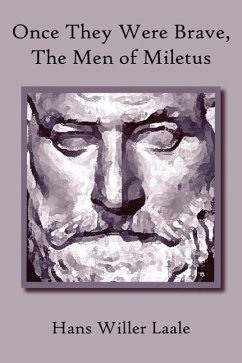The Greek pre-Socratic philosophers Thales, Anaximander and Anaximenes of Miletus are generally considered the intellectual revolutionaries and founders of Western philosophy and science. They appear in the literature as "the first" in long lineages of individuals who have contributed to the advancement of ideas and knowledge. They are, however, not the only Milesians who have made their imprints on the pages of history and literature. The classical texts mention in excess of 200 historical and legendary citizens, and occasional residents, who prior to and following Thales made their marks in astronomy, geometry, mathematics, history, law, politics, cartography, town-planning, poetry, rhetoric, architecture and more. The story begins with the establishment of Minoan and Mycaenean settlements in southern Anatolia, and the legendary founders and citizens of Miletus. It moves on to a more detailed discussion of the lives and contributions of the natural philosophers Thales and his associates Anaximander and Anaximenes, and beyond them to an interesting variety of gifted citizens and residents, all of whom brought fame to the ancient city during the Ionian rebellion, the Persian and Peloponnesian wars, the conquest of Ionia by Alexander the Great, and the fragmentation of Alexander''s empire during the time of the Diadochii, or "War of the Generals". It concludes with the domination of Asia Minor by the Romans during the late Republic and Empire up to the end of the Byzantine period. It is an exciting ''Anthology'' of a city and its talented achievers as set against a background of widely different political circumstances, regional conflicts, rebellions, wars and occupations first under the Hittites, and then under the rulers of Persia, Greece, Sparta, Macedonia, Egypt, Syria, Rome, Byzantium and the Turks. The subject is of ongoing interest to historians, archaeologists and students of classical history, literature, science, religion and philosophy, as well as to
Hinweis: Dieser Artikel kann nur an eine deutsche Lieferadresse ausgeliefert werden.
Hinweis: Dieser Artikel kann nur an eine deutsche Lieferadresse ausgeliefert werden.








